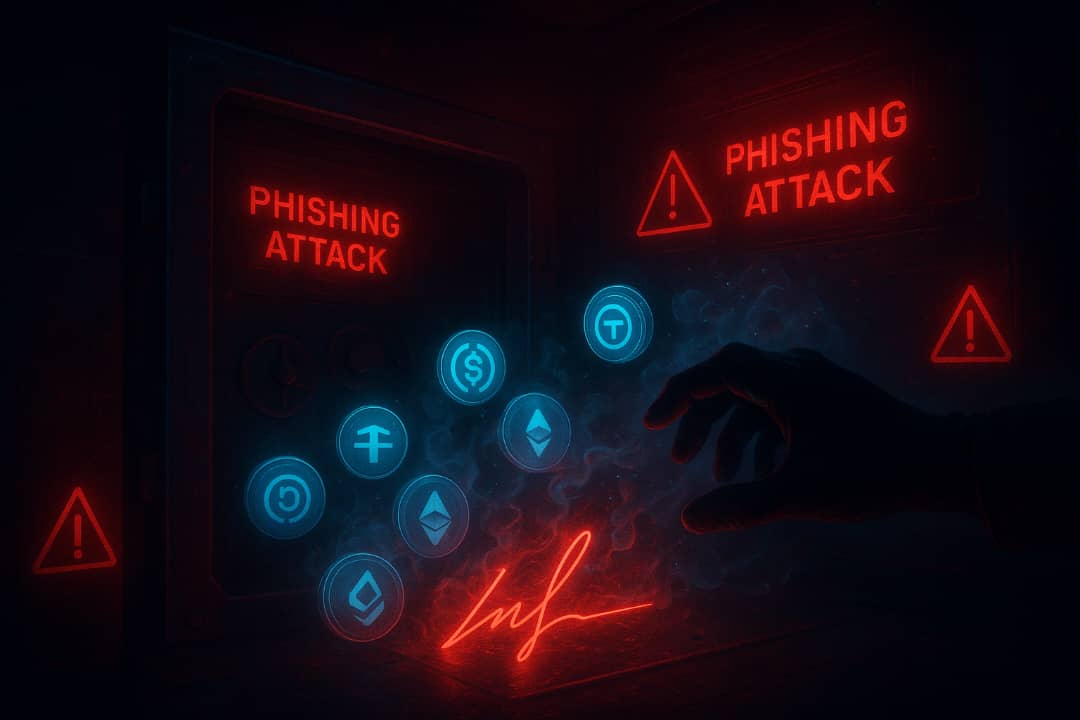
Cryptocurrency enthusiasts and investors witnessed another grim reminder of DeFi’s inherent risks after a staggering $27 million was lost due to a phishing attack involving Venus Protocol. While the platform itself remained unharmed, the incident highlights the significant challenges of self-custody and the ever-present danger of human error.
What Happened in the Venus Protocol Phishing Attack?
On September 2, 2025, rumors spread rapidly across X (formerly Twitter) about a potential exploit on Venus Protocol. Initial speculations suggested a breach of the lending protocol, but investigations quickly revealed that the platform’s code and contracts were secure. The root cause was an unfortunate phishing attack targeting a whale—a large cryptocurrency holder.
The victim unknowingly approved a malicious transaction from a fake website, granting the attacker’s burner wallet, 0x7fd8…202a, unlimited access to their tokens. In a matter of seconds, approximately $27 million worth of cryptocurrency, including $19.8M in vUSDT, $7.15M in vUSDC, and other tokens, was drained.
Venus Protocol’s Response
Venus Protocol quickly addressed the situation by confirming that their smart contracts and frontend were uncompromised. Their statement on X emphasized that the platform would remain paused temporarily to protect users and prevent the hacker from withdrawing remaining stolen funds:
“Venus was not exploited, but we are committed to protecting our users. If the protocol resumes now, the hacker gets the user’s funds.”
Despite ongoing recovery efforts, the chances of retrieving the lost assets remain slim, as the attacker may have already begun laundering the funds through mixers and cross-chain bridges.
Why Phishing Scams Succeed in DeFi
DeFi’s beauty lies in its promise of decentralization, where users maintain complete control over their assets. However, this control also makes individuals solely responsible for their security. Unlike traditional finance (TradFi), where fraudulent transactions can often be reversed, the immutable nature of blockchain means that once assets leave your wallet, they are practically gone for good.
Phishers exploit this vulnerability by preying on trust. Popular attack methods include fake website links, malicious wallet popups, and fraudulent airdrop campaigns. The Venus Protocol incident illustrates how deceptive URLs and phishing tactics can trick even experienced users into granting dangerous wallet approvals.
4 Essential Tips to Protect Your Crypto Assets
Staying safe in the DeFi landscape doesn’t require you to be a cybersecurity expert—just a little extra vigilance can go a long way. Here’s how you can protect your crypto investments:
- Don’t Click Random Links: Always type URLs manually or bookmark official websites of the platforms you use.
- Double-Check Every Transaction: Look carefully at approval requests before signing. Avoid granting infinite token access when it isn’t necessary.
- Revoke Old Approvals Regularly: Tools like Revoke.cash allow you to manage and remove lingering token approvals from inactive contracts.
- Use a Hardware Wallet: Hardware wallets like the Ledger Nano X (Buy here) add an essential layer of protection by requiring physical confirmation for every transaction.
The Future of DeFi Security
Experts agree that while advancements in smart contract technology have reduced vulnerabilities, the human factor remains the weakest link in DeFi security. Simple measures such as improving user interface design, enhanced scam detection, and better education can make a significant difference in empowering users to make safe decisions.
As the bull market gains momentum, the rise in wallet balances is also expected to fuel phishing attempts. Whether it’s fake MetaMask popups or fraudulent ‘limited time’ airdrops, attackers will keep innovating. That’s why staying informed and maintaining strict security habits is your best defense.
Final Thoughts
This incident involving Venus Protocol serves as a stark wake-up call to investors about the high stakes of self-custody in decentralized finance. While protocols and smart contracts become increasingly secure, your personal vigilance remains the most critical safeguard. Remember—DeFi empowers you to be your own bank, but with that power comes great responsibility.
For regular updates on cryptocurrency security, trends, and news, subscribe to our newsletter and stay ahead in the ever-evolving world of DeFi.



